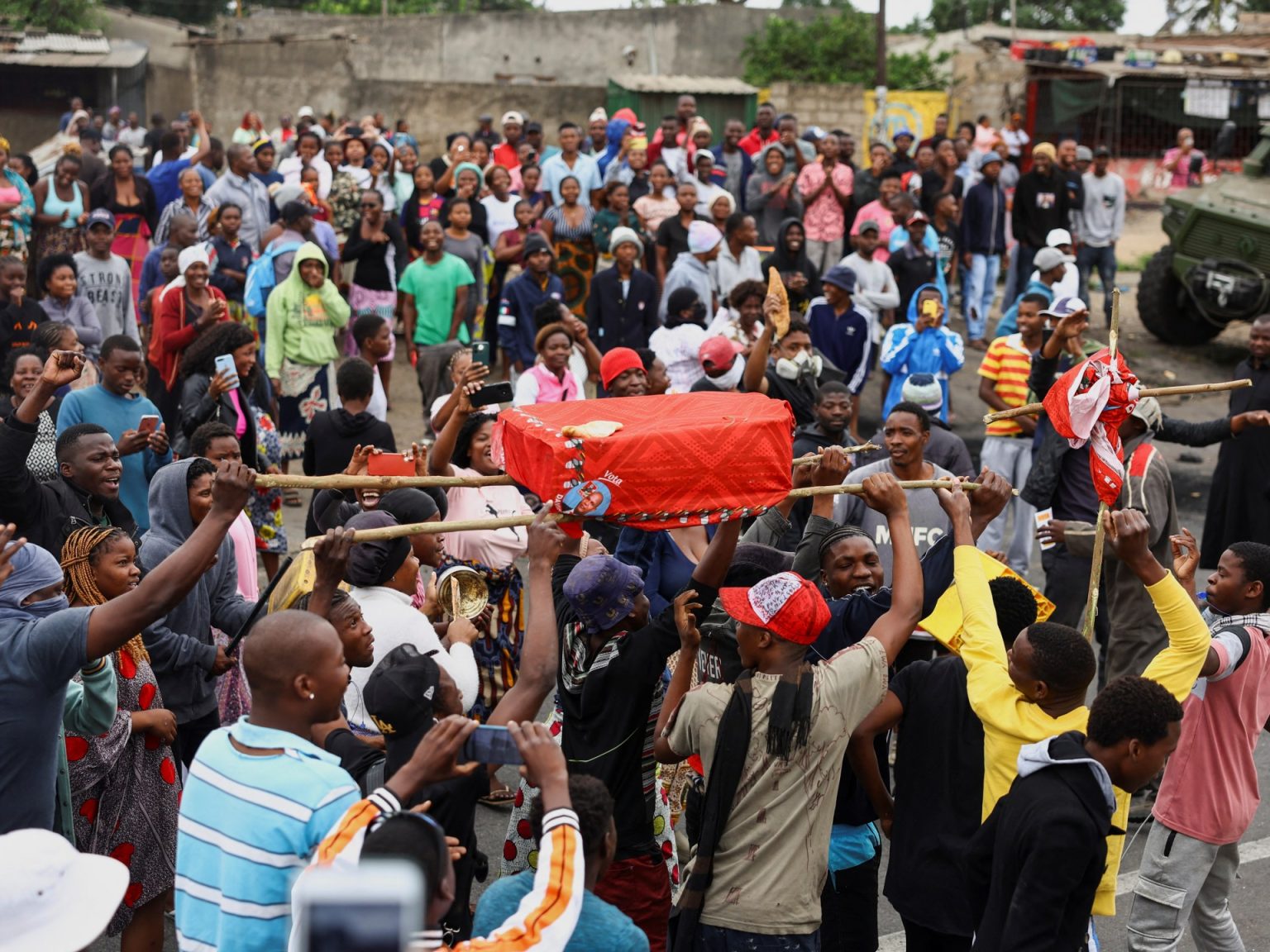In Mozambique, at least 30 people have been killed in the aftermath of a disputed presidential election, leading to violent crackdowns on protests by the ruling Frelimo party, which has held power for nearly half a century. Human Rights Watch reported the deaths occurred between October 19 and November 6, with the toll not including additional violence on Thursday when police and soldiers dispersed protesters in the capital, Maputo. The Centre for Democracy and Human Rights has stated a total of 34 deaths resulting from the protests. The ruling Frelimo party, in power for 49 years since independence from Portugal, was declared victorious in the election with over 70 percent of the votes, despite opposition groups and observers claiming the election was unfair and rigged.
Following the violent crackdown on opposition supporters protesting the election results, the Mozambique government implemented arbitrary restrictions on internet access, infringing upon human rights. Mozambique’s largest hospital confirmed at least three people were killed and 66 injured during clashes between police and protesters, with injuries including those caused by firearms, falls, physical aggression, and sharp weapons. Human rights groups have accused Mozambican police of using live ammunition against political protesters in the past, although the interior minister has defended the police response as necessary to restore public order. Soldiers have now been deployed on the streets to support the police in maintaining order, with the presidential palace heavily guarded and security forces patrolling the streets to quell further unrest.
Protests escalated in Maputo as thousands of demonstrators barricaded roads and set fires while chanting “Frelimo must fall” and throwing rocks, prompting the use of tear gas and rubber bullets by police. The Constitutional Council has not yet validated the election results, which are required for official recognition of the outcome. President Filipe Nyusi, who has served two terms, is stepping down in accordance with the constitution, with the presidency transferring to Daniel Chapo, the declared winner of the election. The political turmoil and crackdown on protests have raised concerns about the future stability and democracy in Mozambique, with tensions escalating between the ruling party and opposition groups.
As the violence and crackdowns continue in Mozambique, international organizations and human rights groups are calling for an end to the arbitrary restrictions on internet access and for a peaceful resolution to the ongoing political crisis. The deployment of soldiers on the streets to support the police in maintaining order has raised fears of further violence and repression against protesters. The government’s use of force to suppress dissent has prompted condemnation from the international community, with calls for accountability and justice for the victims of the crackdowns. The future of Mozambique remains uncertain as the country grapples with the aftermath of a disputed election and the violent response to protests against the ruling party.
The clashes between protesters and security forces in Mozambique have resulted in a significant number of deaths and injuries, prompting concerns about the government’s heavy-handed response to dissent. The ruling Frelimo party’s victory in the disputed election and the subsequent crackdown on protests have highlighted the country’s deep-seated political tensions and challenges to democracy. The international community and human rights organizations continue to monitor the situation in Mozambique closely, urging the government to respect human rights and engage in dialogue with opposition groups to address the underlying issues driving the unrest. The deployment of soldiers on the streets and the restrictive measures on internet access have only heightened concerns about the government’s commitment to upholding democratic principles and protecting the rights of its citizens.


